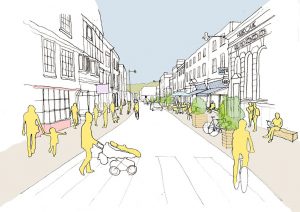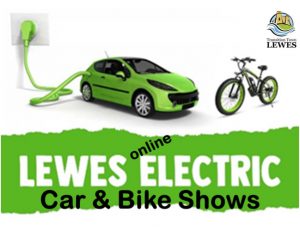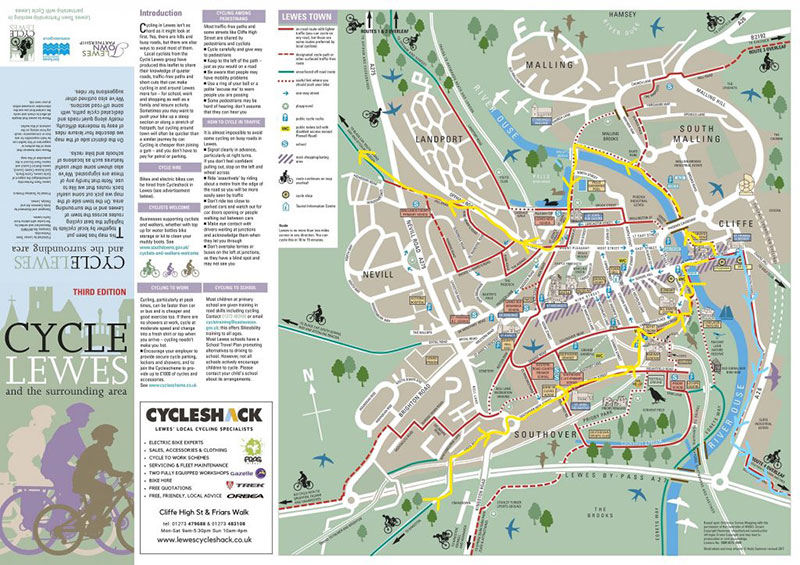Are we there yet? Imagining travel in Lewes 2030 Saturday 1 July, 11am-3pm, Lewes Climate Hub, Lewes House, 32 High...
Read More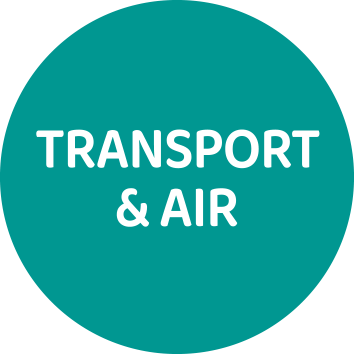
Low Traffic Lewes project proposal
Lewes Living Streets and Cycle Lewes have joined forces to put together a project proposal to help make Lewes a...
Read More1 Transport
Transport accounts for around 20% of global carbon dioxide (CO2). To combat climate change, we all need to take action to decarbonise the way we move around. In some countries, notably wealthier ones such as the UK with populations that travel often, transport can be one of the largest segments of an individual’s carbon footprint Which form of transport has the smallest carbon footprint? (Source: https://ourworldindata.org/grapher/carbon-footprint-travel-mode)
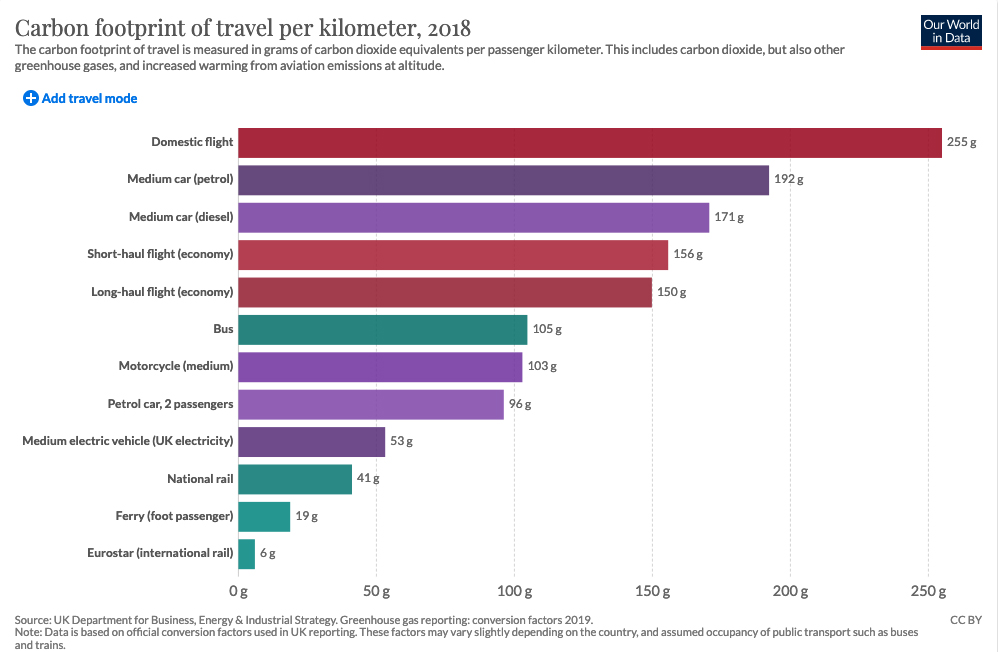
But simply reducing air travel, as is often thought, will not solve the problem. In the UK, surface transport – particularly motor vehicles – is the single largest generator of carbon emissions, accounting for 24% of all emissions in 2019 UK Climate Change Committee 2019 Progress Report.
See also this article: Planes or cars – which pollutes the most?
Beyond carbon footprint, the effects of car pollution are widespread, affecting the air we breathe and our health. But they also affect the soil and water quality. Nitrous oxide contributes to the depletion of the ozone layer, which shields the Earth from harmful ultraviolet radiation from the sun. Sulphur dioxide and nitrogen dioxide mix with rainwater to create acid rain, which damages crops, forests and other vegetation and buildings. Oil and fuel spills from cars and trucks seep into the soil near highways, and discarded fuel and particulates from vehicle emissions contaminate lakes, rivers and wetlands. (See Effects of car pollutants on the environment, and WHO on health effects of transport-related air pollution.
Electric cars, new cars – and the issue of SUVs
Although electric cars will start to become the norm, they will still contribute to particulate pollution from wear and tear of brakes and tyres (with abrasion from road surfaces). In Lewes, Transition Town Lewes has taken the initiative, hosting electric car events and discussing their advantages and drawbacks: Hosting of an electric car event and Myths about electric cars
Meanwhile, the environmental costs of car production and the increasingly popular SUVs are a new source of emissions. SUVs require more energy to move around than smaller cars, overshadowing any gains from fuel efficiency and electric vehicles. A new report reveals that ‘Chelsea tractors’, those large urban SUVs, really are in Chelsea. ¾ of all SUVs in the UK are registered to people living in towns/cities, being most popular in the London boroughs of Kensington & Chelsea, Hammersmith & Fulham, and Westminster. It’s a luxury/lifestyle choice, but the off-road facilities (heavy extra equipment, huge engine, high fuel consumption) are a pure status symbol for most of these owners.
Some references on SUVs:
Sports Utility Vehicles – time to run them out of town?
How SUVs conquered the world – at the expense of its climate
SUVs are way worse for the planet than anyone previously thought
Making a new car creates as much carbon pollution as driving it
The role of hydrogen
Hydrogen fuel has been promoted as a solution that will free us from fossil fuels and their use in transport. It will be an important component where there is no other low-carbon alternative, and potentially for heavy goods vehicles and shipping. Its production and use in low-carbon economies has been scrutinised by Friends of the Earth: The role of hydrogen in our low-carbon transition.
See also Transition Town Lewes’s take on this: 10 things hydrogen can, could and can’t do for us.
Moving to active travel
The Energy Savings Trust focuses on active travel, setting out a sustainable travel hierarchy as a useful tool to help us think about improving the impact of our journeys. The higher up the hierarchy, the more sustainable and greener the travel option.
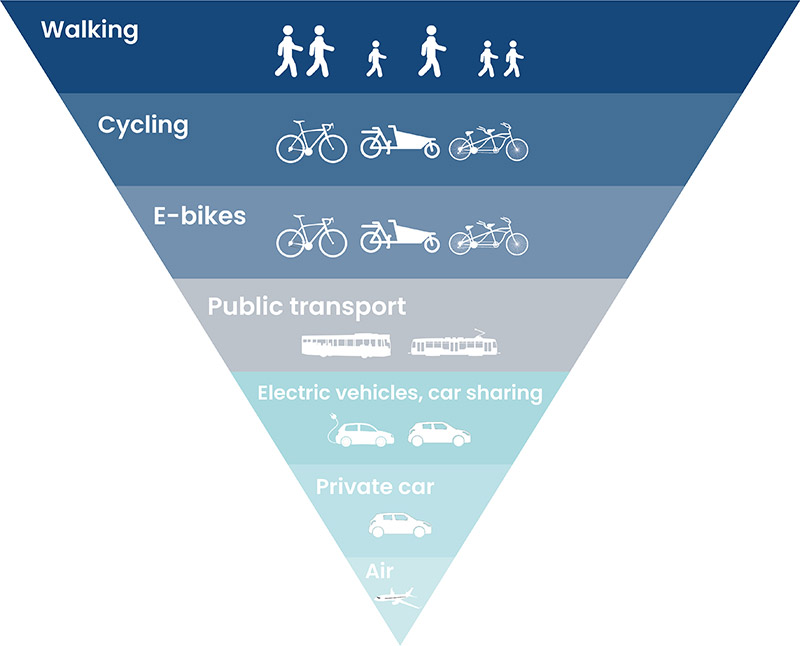
(Source: https://energysavingtrust.org.uk/advice/active-travel/)
National action groups
World Car-Free Day (22 Sept 2021) , aimed at re-imagining what streets could be like without traffic, where you don’t have to ‘watch your back’ for cars and where streets are quieter and more people get out and walk and cycle
Friends of the Earth on getting people out of their cars on the fundamental role of transport, and increasing use of private cars, with the implications for climate change and other issues
The urgent case for local buses
The recent Government proposal to spend £3 billion on local bus services is welcome; but if we are serious about tackling the climate emergency we must raise our ambitions higher than propping up a failing bus service with a one-off injection of cash. By observing models of efficient public transport from Switzerland and Germany, we can design a bus service that is fit to tackle the climate emergency and end social exclusion and inequality caused by car dependence in rural communities.
A report from the Campaign to Protect Rural England lays out in detail how this can be done, including the requirement that we must invest in public transport as a ‘Public Good’. This means advocating a universal right to public transport and the creation of statutory duties to provide it.
According to the CPRE research, £3 billion additional funding every year would be enough to deliver a service to every village, every hour, with affordable fares. Social, economic and environmental benefits give revenue expenditure on bus services a return on investment of up to £3.80 for every £1 spent. Using buses rather than private cars reduces air pollution, pollution from tyre and brake wear, traffic congestion and CO2 emission, while increasing physical exercise (in walking to/from bus stops). There is a direct correlation between improvement in bus services and reductions in social deprivation. Provision of local buses allows low-income and disabled people, particularly in our villages, to get affordably to work or places of education and to shop in local high streets.
Train Travel
We should consider train travel as an alternative to driving, particularly for business travel.
Trainline has recently launched a business travel platform to help make it easier to travel by train for business.
Watch a recording of the Air Pollution and Health Talk here
Quick links:
1 Transport
- Electric cars, new cars – and the issue of SUVs
- The role of hydrogen
- Moving to active travel
- National action groups
- The urgent case for local buses
2 Air quality – a public health emergency
- References/resources on air pollution
- National action groups
3 Transport & air quality in the Lewes district
- Lewes area groups and activities
- What can I do to help?
- Personal story: Disability and cycling
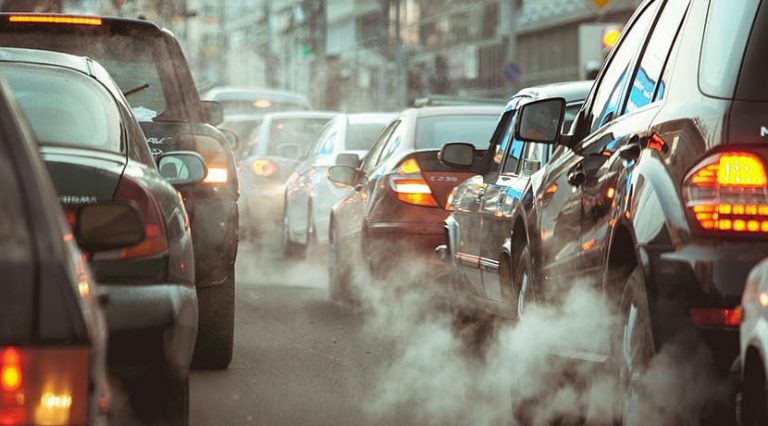
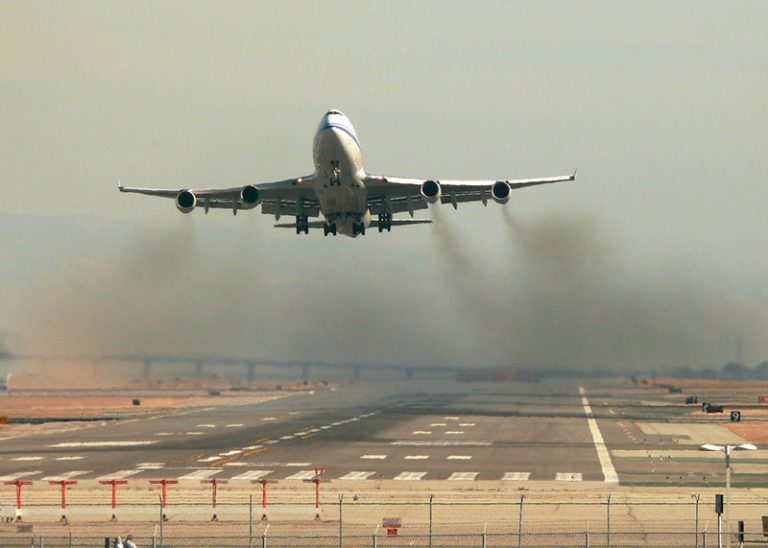
See this article: Planes or cars – which pollutes the most?
Lewes Electric Car and Bike Show
Transition Town Lewes 2021 electric car and bike shows If you missed them – or would like to catch up...
Read More2 Air quality – a public health emergency
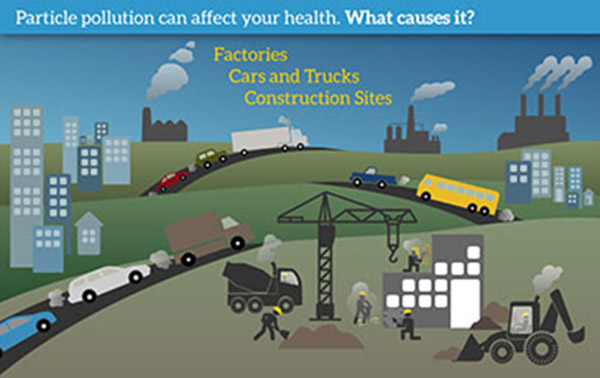
(Source: https://www.cdc.gov/air/particulate_matter.html)
Poor air quality is the largest environmental risk to public health in the UK. Its threat is less well understood than, for example, smoking, even though research says it is of a similar detrimental effect. The evidence is mounting of its impact on our health throughout our lives.
There are two main types of air pollutant that harm people’s health: Nitrogen Dioxide (NO2) and fine Particulate Matter (PM2.5). (See the British Lung Foundation’s Clean Air Campaigns Hub). Polluted air can cause chronic conditions such as heart and respiratory diseases as well as lung cancer, and lead to reduced life expectancy. It affects everyone, but some people more than others: pregnant women, children, older people and those living with lung conditions.
Early deaths through air pollution in the UK were estimated in 2018 to be up to 36,000 (King’s College London report), while in February 2021 a UK Parliament cross-party committee reports an estimated figure of 64,000, with those living in deprived areas and those from minority ethnic communities disproportionately affected.
Campaign groups and cross-party parliamentary committees are calling for the UK Government to adopt into law the WHO limit for particulate levels: current legal limits are twice as high.
The Environment Bill does not provide the robust legal framework needed, given the scale and urgency of the challenge. It should be amended to include a specific target to reduce the annual mean concentration of PM2.5 to under 10μg/m3 by 2030, in line with World Health Organisation guidelines. The Secretary of State should also use his discretionary powers in the Bill to set additional long-term air quality targets for the other key pollutants that harm human health. Take action by writing to your MP and joining the British Lung Foundation, calling for action
References and resources on air pollution
Air pollution: everything you should know about a public health emergency
Government guidance on air pollution
20 shocking facts about air pollution
The impact of indoor air pollution
National action groups
The British Lung Foundation works and campaigns to ensure everyone breathes clean air with healthy lungs.
Mums for Lungs runs a number of campaigns to improve air quality with members across the UK, including ‘Don’t Idle’. This raises awareness of air pollution from car engines ‘idling’. Air pollution can be three times higher INSIDE cars than outside. They are lobbying supermarkets to leave Logistics UK, who have successful lobbied to delay Clean Air Zones.
Clean Air Day (June 17 2021)
3 Transport & air quality in the Lewes district
In the Lewes district, on-road transport is the second largest source of carbon emissions (38%). Lewes town is one of two Air Quality Management Areas with levels of nitrogen dioxide exceeding national air quality objectives, transport being one of the main reasons for poor air quality.
Lewes area groups and activities
Here are some examples of active local groups; see the full Groups and Contacts list for more. Please do look too at the information above on national groups, and think about how you can work locally to demand action and change.
Cycle Lewes promotes cycling and campaigns for safer cycling in Lewes and in/out of the surrounding villages. The group organises events and produces regular newsletters and updates on what it is doing. Currently it’s undertaking an audit of cycle parking in the town. Get in touch! We need more members, especially those who can help with campaigning.
Lewes Living Streets want to make walking and cycling easy and enjoyable by making roads safer, easier to cross, less noisy and less busy. We want to get people walking and cycling whenever possible, securing the health benefits of active exercise and reduced pollution from fewer cars.
Living Streets research shows that people are more likely to talk to and know their neighbours on streets with less vehicles and slower speeds. And fear of fast traffic, particularly by parents of school age children, creates more car journeys, more congestion, more aggressive driving, more stress, more pollution, less physical activity and more dangers. We have to break out of this destructive cycle.
Lewes Living Streets are also working to implement ‘school streets’ (roads outside a school with a temporary restriction on motorised traffic at school drop-off and pick-up times). Currently only one trial is planned in Lewes, at Southover Primary, and this is postponed due to Covid-19.
Transport Action Network helps support people and groups to press for more sustainable transport, based in Brighton and working on local and regional campaigns.
Green United is a collaboration between young people, schools, the Lewes community and the University of Sussex. It acts as platform for young people to learn, engage and act on environmentally related issues.
South Coast Alliance for Transport and the Environment (SCATE)
Take personal action
The choices people make about whether to travel, and how they travel or transport goods using different modes of transport, all determine the environmental impact of that journey. So when we need to travel, how can we reduce our negative impact on the environment/reduce transport-related carbon emissions? By moving from cars to bikes, buses and trains where possible, particularly for short journeys under 5 kilometres. Within Lewes Town we should walk, ride a bike or scoot wherever possible to avoid carbon emissions completely.
- Can I walk, cycle, electric-cycle, scoot?
- Can I take public transport or ride-share (spreading emissions out over multiple riders)?
- Considering a new van? Can you use a cargo bike instead, or an Electric Assisted Vehicle?
- Considering a new car? Do I need one, or can I use a car club?
- No, I really need a car: can you buy electric?
Where we shop also has an impact on emissions:
- Can we do more of our shopping locally, reducing the number of vehicles circulating on our streets and supporting our local economy?
- Can you ask for deliveries via a bike, or consider using a tradesperson who moves around by bike or electric vehicle?
What do our councils, governments, businesses and other organisations need to do?
The Government needs to re-allocate funding from road building and increase funding for more public transport and walking and cycling infrastructure. East Sussex County Council needs to do the same.
(See Department of Transport report on Decarbonising Transport: Setting the Challenge plans to promote electric vehicles over petrol and diesel, research into alternative fuels and renewables, focus on public transport and on cycling, scooters and walking)
Organisations and businesses, including local councils, need to take their own actions, similar to those we need to take, and ask themselves the same questions.
Local web resources:
- Cycle.Shop.Lewes is a Council-backed initiative to encourage Lewes post Covid 19 to become a more pedestrian/cyclist-friendly town
- Travel Log Lewes has great information on all sustainable transport in the local area: local buses, trains and boats, and walking and cycling. Sign up for monthly newsletters. The website has lots of links to useful information including links to live timetables.
Car options:
- Car clubs: joining a car club can be cheaper and greener than owning your own car. Car club members often find they drive less and pollute less. Co-Wheels, a national car club operating in Lewes, have hybrid and low emission vehicles. There are 4 Lewes locations where you can pick up a car
- Choosing an electric vehicle : the choice is increasing; information and advice is available from the Energy Saving Trust for individuals and business, including details of any grants and support available for the installation of charging points or off-setting the purchase of electric vehicles
Cycle training:
- Many schools offer this for young people via East Sussex County Council . For adults, if you want to improve your practical skills and build confidence then a local Bikeability registered trainer – or experienced local trainer Mike Bray – could be helpful
Personal story: Disability and cycling
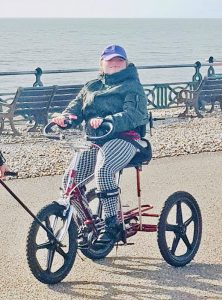 Cycling is booming, as it’s a cheap, socially distanced way of getting around that’s fun and gives you exercise. Great if you’re young and athletic, but what if you’re older, disabled or have health problems?
Cycling is booming, as it’s a cheap, socially distanced way of getting around that’s fun and gives you exercise. Great if you’re young and athletic, but what if you’re older, disabled or have health problems?
According to disabled cycling charity Wheels For Wellbeing, increasing numbers of disabled people are cycling, as it aids mental and physical health and provides independence. The biggest barrier is lack of facilities, including safe cycle lanes and secure storage.
Bricycles, the Brighton and Hove cycling campaign, has spoken to people of different ages and mobilities who are enjoying the freedom, convenience and health benefits of cycling.
Amanda Massey broke her neck in an accident and uses an electric trike to get around. She said: “I used to cycle regularly until I became disabled. “I live off the Old Shoreham Road and as soon as I saw them putting in the temporary lanes, I got my e-trike.”
Heloise Peligry, 27, is unable to walk unaided. She has been cycling since she was six, when her mums Claire and Lizzie got her an adapted trike through charity Whizz-Kidz.


